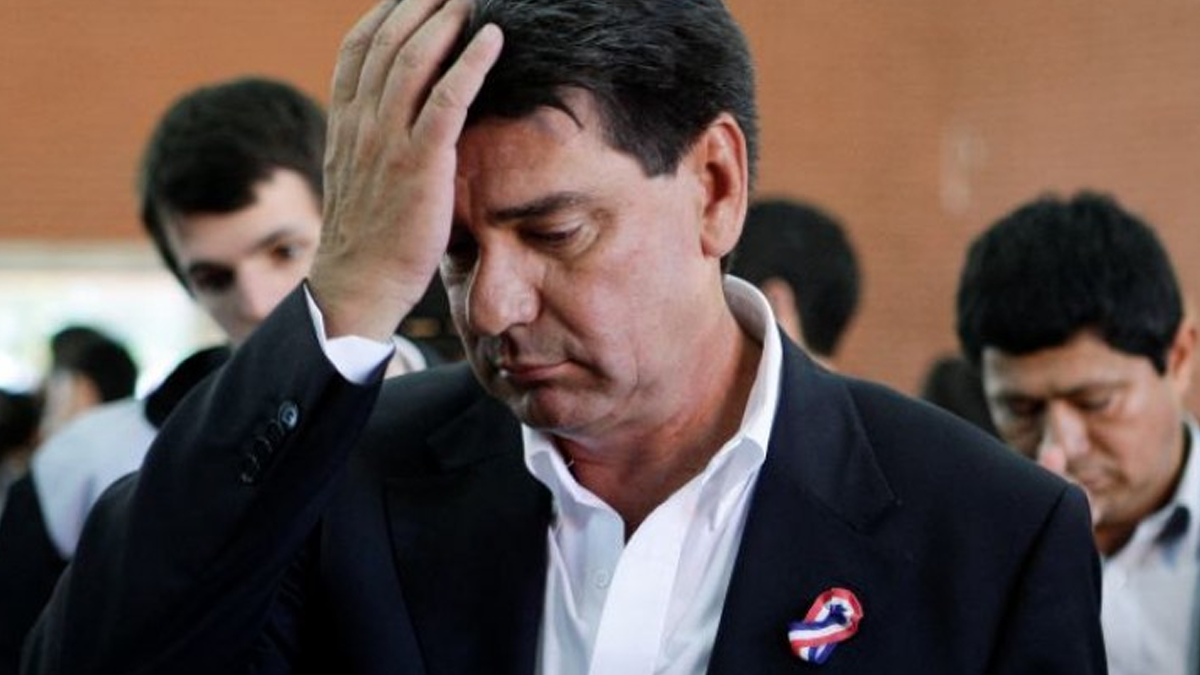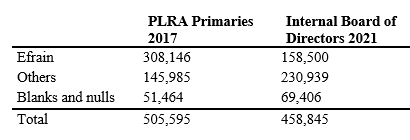
By Javier Lassalle.
The National Concertation “For a New Paraguay” suffered some schisms when the presidential pre-candidatures were made official. Cruzada Nacional de Paraguayo Cubas and part of Frente Guasu withdrew from it and will go to the general elections (thus avoiding competing in internal elections). Both groups tried to seal a partnersip with Efrain Alegre and when the latter opted for Soledad Núñez, they decided to leave the Concertación.
It is necessary to say first that the idea of leaving the Concertation for the presidency does not stand any logic, if the idea is really to win the presidency. If they believe that they cannot beat Efrain Alegre in an internal election, then they have even less chances of winning the general elections. Why? Because the electoral roll of the Concertation’s internal and the general elections of 2023 is the same and, if Efrain wins the primaries, he will add the support of the rest of the Concertation. Therefore, if they cannot beat Efrain in an internal election, they could never beat Efrain and the Colorado Party in the general elections.
Both Euclides-Querey and Paraguayo Cubas, unfortunately, are no longer seriously aspiring to be presidents. Many of us would have liked to see them in the Concertation’s internal elections, since their candidacies in an internal election could generate an interesting debate. They now aspire to other things, perhaps to negotiate some agreement after the internal elections or some other objective that we do not know of.
The exit of Cubas and part of the Frente Guasu seems to be based on the fact that Efrain Alegre is invincible in an internal election. It is this point that I want to cover in this article, since I believe that a victory of Efraín is not certain and that those who left the Concertation missed a great opportunity to lead the opposition majority through a victory in the internal elections.
I believe that those who dropped out of the competition made a serious miscalculation, especially the Frente Guasu, a party with almost 280,000 votes in 2018, and also Paraguayo Cubas and Kattya González, who did relatively well in the polls. The PLRA, despite all the criticisms that can be made to it, was extremely generous in encouraging internal elections under these conditions. The PLRA could have tried a previous internal election and presented a single candidate, for example, but did not do so.
The Concertation achieved the best possible scenario for candidates from non-traditional parties. The main thing is that the electoral roll was opened to all those registered before the TSJE. This prevented the electoral roll from being mostly affiliated to the Liberal Party. The national electoral roll has about 4,900,000 voters and the PLRA has about 1,500,000 members. The second important thing is that the PLRA is divided, so it loses the advantage that the structure of this party gives it to move on election day. It would have been different to compete with a smaller electoral roll and the PLRA united.
Then there are the numbers. Even though the PLRA registers more than 1,500,000 members, the real flow appears to be much smaller. In Table 1, we see that the PLRA obtained less than 600,000 votes in the last two elections in its senatorial slate.
Table 1: Votes for lists for Senators, 2013 and 2018.

If we look at the PLRA internal elections, in 2017 and 2021 the total number of votes is 500,000 or less (see Table 2), with over 10% of null or blank votes. Table 2 also gives us an idea of Efrain Alegre’s electoral flow: 308,146 votes in the 2017 internal and 158,500 in the 2021 internal.
Table 2: Number of votes in the PLRA internals of 2017 and 2021.

Source: TREP 2017 and PLRA 2021.
Therefore, we cannot assume with so much certainty an easy and comfortable victory of any liberal candidate, especially in this internal election where there are four liberal candidates (Efrain Alegre, Martín Burt, Hugo Fleitas and Herminio Ruíz Díaz). The electoral roll is huge and the candidate of a non-traditional party that manages to motivate the electorate has a real chance of winning. Even discounting the 1,400,000 who would participate in the ANR internal election, there are still 3,500,000 potential voters.
Despite these numbers, Paraguayo Cubas, Kattya González, Euclides Acevedo, Esperanza Martínez and Soledad Núñez decided not to compete for the presidency. Those who were encouraged, on behalf of the non-traditional parties, are Sebastián Villarejo of the Partido Patria Querida and Hugo Portillo of the Partido Demócrata Cristiano.
I believe that those who dropped out of the competition made a serious miscalculation, especially the Frente Guasu, a party with almost 280,000 votes in 2018, and also Paraguayo Cubas and Kattya González, who did relatively well in the polls. The PLRA, despite all the criticisms that can be made to it, was extremely generous in encouraging internal elections under these conditions. The PLRA could have tried a previous internal election and presented a single candidate, for example, but did not do so.
Among the two candidates of the non-traditional parties, Sebastián Villarejo is probably the best known and with the most potential. Seen from Villarejo’s point of view, he finds himself in a dream position: Being practically the only representative of non-traditional parties, being the youngest in a census with more than 50% under 40 years of age, he faces the PLRA which is divided in four candidacies. Perhaps 300,000 votes or more will be enough to lead the Concertation. Nothing more than that thanks to the several liberal candidates and almost no competition among the non-traditional candidates. Will he make it?
Cover image: Radio Par
